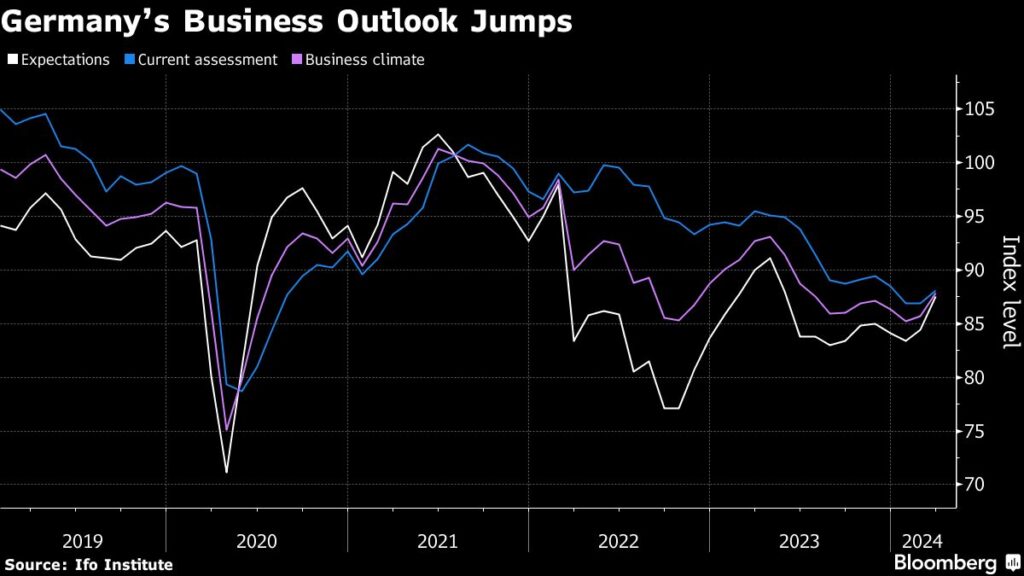(Bloomberg) — Germany's economic outlook has come in much better than expected, raising hopes that the economy will recover from the slump that caused the euro zone to lag.
Most Read Articles on Bloomberg
The Ifo Research Institute's expectations index for March rose to 87.5 from the previous month's revised value of 84.4. This is the highest level since May 2023 and higher than the median estimate of 84.7 in a Bloomberg survey. Indicators showing the current situation also exceeded expectations.
“There is light on the horizon for the German economy,” Ifo Chairman Clemens Fuerst said in a statement.
Europe's biggest economy likely slipped into recession late last year, and Germany's Bundesbank reiterated on Thursday that an economic contraction in the first quarter of 2024 is likely due to a prolonged manufacturing downturn.
A survey of companies conducted by S&P Global this week confirmed this assessment. Although the situation in the services sector improved and moved closer to stagnation, the factory activity index unexpectedly fell, falling further below the threshold indicating expansion.
Forecasters expect consumers to fuel a modest recovery in coming months as inflation recedes and wages improve on the back of a strong labor market. Interest rate cuts likely to start in June from the European Central Bank will also ease the burden of high borrowing costs.
The situation in the euro area as a whole is favorable, and the Purchasing Managers' Business Conditions Index for March shows that the service sector is gaining momentum more than expected.
Differences of this kind have sparked a debate in Germany over structural factors such as high energy costs, unfavorable demographics, and heavy dependence on Chinese inputs that could continue to limit growth in the long term.
–With assistance from Joel Rinneby and Kristian Siedenburg.
Most Read Articles on Bloomberg Businessweek
©2024 Bloomberg LP


